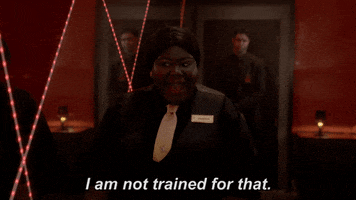5 Warning Signs Your HR Tech Implementation Is Heading For Trouble
The journey towards digital HR transformation is always exciting and interesting. Having an effective HR system will make a lot of processes and tasks smooth and efficient. At times, while focusing on the big picture stuff, many implementation projects miss out on smaller but important details that can lead to difficulties if not given careful consideration. It is very important to be aware of these things to make sure your implementation is a success and people around the company are using the new system at an optimum level. Therefore, we have highlighted 5 common indicators that your HR Tech implementation is heading for trouble:
1. Stakeholders are not synced
An HR platform is not only for the HR department, but for multiple functions within the company. Thus, it is very important that all the stakeholders across the business have the same level of understanding. During your initial conversations and meetings, if you realize that the stakeholders have a difference of understanding, you are sure to know that the project implementation can quickly falter - as alignment is absolutely key here. If the issues are identified, you should conduct a walkthrough for all the stakeholders and reaffirm the future vision and use of the system. Having an open Q&A session would be beneficial. Communication always plays a huge role in the success of any project. Over communication is better than inadequate communication. Talk through the features and processes that the system will cover and how each department will be able to use the tool, as well as updating stakeholders at every stage of the project on how it is progressing.
2. The process and system do not compliment each other
There are many HR Tech tools in the market that are designed to fulfill various needs of different industries and sectors. Before deciding on or even looking for a platform, a thorough analysis of the requirements of the organization needs to be completed. If this step is missed or not considered properly, even some of the the best HR technology tools will not survive. Understand that each tool has been created to cater to specific needs, so be very careful when you make your final selection decision. For example, if your company follows an open time-off policy and you select a tool that requires multiple level approval to book a day-off, you can imagine what a mess that will create. Not only will people be reluctant to use the tool, but they will also have a negative employee experience.
3. HR Tech stands alone
HR technology has enormous potential to support not only the HR team but other functions in the company. Often this depends on how well the system can integrate with other platforms in IT, Finance and Operations, for example. In the world of collaborative tools, if your HR Tech does not compliment other relevant systems already being used in the company, there can be a reluctance to use the newly implemented tech. Pre-built integrations and an open API are increasingly popular in the HR tech space, so don’t be shy to enquire about integration capabilities and support while selecting and finalizing the platform shortlist.
4. HR Tech Orientation and Training are nowhere to be found
Getting people out of their comfort zone to use something new can be a very difficult task. For the general acceptance and usage of the new system to be high, you need to train your people on the functionalities and benefits of the tool extensively. Train them on how to use it for themselves and explain exactly what purpose it serves for them directly. Initially, try to get early adopters using the tool on a trial-like basis, asking for continuous feedback and making customisations where required. When launching the tech platform formally across the wider business, rewards and prize draw competitions can also provide an extra boost when it comes to adoption. Knowing how to use the tool effectively will drastically improve user engagement.
5. Expecting technology to work like magic
Unfortunately you can’t just plug in a technology platform and expect it to work like magic. Your newly selected HR system is not a Wizard with supernatural powers - you need to fully understand its features and limitations and ensure your stakeholders understand these too. HR technology works beautifully when a complex task is broken down into a series of small steps that need to be completed sequentially. For the technology to be able to complete more unique HR processes that involve multiple people, it is often necessary to design and build customized workflows within the system - this will require careful planning and human input. This type of workflow design also gives you the chance to reevaluate your HR processes.
Have you faced any of these challenges while implementing new HR systems? Are you facing these issues right now? Reach out to DayoneHR for help with your HR Tech Transformation project. Whether you want us to take over and lead the project or provide coaching as you continue on your journey, we’ve got you covered!






